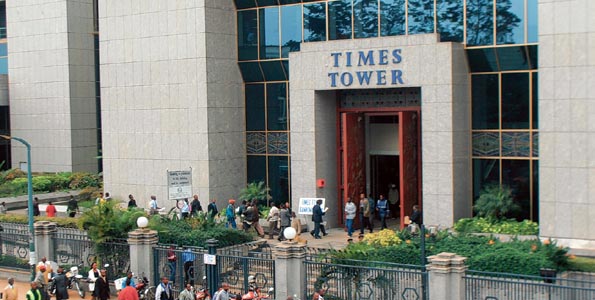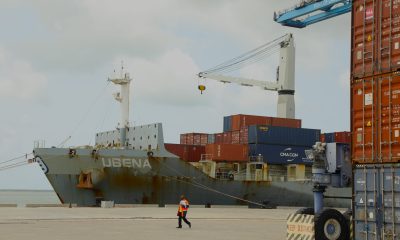Business
Tax Cheats: Court Orders TechSavana to Pay KRA Sh74M

High Court ruling deals blow to software firm’s attempt to dodge VAT on outsourced developer services
A Kenyan software development company has been dealt a devastating blow after the High Court ordered it to pay Sh74 million in unpaid Value Added Tax (VAT) to the Kenya Revenue Authority (KRA), overturning a tribunal decision that had initially favored the firm.
TechSavana Company Limited, which provides software development services to major corporations including Safaricom PLC and KCB Bank, had been fighting a protracted battle with tax authorities over whether its outsourcing arrangement constituted a taxable service subject to VAT.
The scheme unraveled
The case, which spans financial records from 2016 to 2019, exposes how TechSavana attempted to structure its business model to avoid tax obligations.
The company had entered into contracts with blue-chip clients to identify and second qualified software developers, arguing it was merely acting as an intermediary agent rather than providing taxable professional services.
Justice Hellene Namisi, delivering the High Court ruling, rejected TechSavana’s defense and sided with KRA’s assessment that the arrangement constituted a supply of professional and technical services subject to the standard 16% VAT rate.
“KRA was correct in assessing VAT on the services rendered by TechSavana Company Limited to its clients,” Justice Namisi ruled, ordering the company to pay Sh73.8 million in VAT plus Sh3.5 million in withholding tax.
Failed defense strategy
TechSavana had crafted what it believed was a bulletproof defense, claiming its role was purely administrative.
The company argued that it merely sourced human capital based on client specifications and salary scales, with the outsourced developers falling under the direct control and management of the client companies.
In court documents, TechSavana maintained that it received money on behalf of developers from clients and paid them in full, describing this as a transaction that involved “no value addition.”
The firm claimed its service level agreements clearly indicated developers were entitled to gross salaries and statutory benefits including National Health Insurance Fund (NHIF) and National Social Security Fund (NSSF) contributions.
“The staff was at all times under the direct supervision of the customer, and our work was merely facilitation,” TechSavana argued, positioning itself as a passive conduit for salary payments rather than a service provider.
KRA’s winning arguments
The taxman took a different view, arguing that TechSavana was providing substantive professional and technical services that attracted VAT under Kenyan law. KRA’s position proved prescient when the court examined the actual working arrangements.
Critical to KRA’s case was evidence showing that TechSavana maintained “complete and comprehensive documents and accounts” and supplied clients with monthly payroll records and tax submission reports.
This level of administrative responsibility, the court found, went far beyond mere facilitation.
The ruling represents a significant victory for KRA in its ongoing efforts to close tax loopholes in Kenya’s growing technology sector.
The case sends a clear message to companies attempting to structure arrangements to avoid VAT obligations on professional services.
The TechSavana ruling comes amid broader changes to Kenya’s VAT regime affecting exported services and professional outsourcing.
Since July 2022, exported services (except for business process outsourcing) have been subject to VAT at the standard rate of 16%, creating additional compliance challenges for technology companies serving international markets.
The decision is likely to have ripple effects across Kenya’s burgeoning technology sector, where outsourcing arrangements have become increasingly common.
Many firms may now need to reassess their service delivery models and tax compliance strategies.
Industry sources suggest the ruling could particularly impact companies that have adopted similar “agent” structures to minimize tax exposure.
The court’s emphasis on substance over form indicates that KRA will likely scrutinize the actual nature of service arrangements rather than accepting contractual descriptions at face value.
Timeline of the tax battle
The dispute began when KRA notified TechSavana of its intention to verify company records.
Following a comprehensive audit covering the 2016-2019 financial period, KRA issued preliminary findings on October 17, 2020.
The Commissioner of Domestic Taxes subsequently issued the contested assessment demanding Sh73.8 million in VAT and Sh3.5 million in withholding tax.
TechSavana objected and, after unsuccessful negotiations with KRA, took the matter to the Tax Appeals Tribunal.
Initially, the tribunal sided with TechSavana and quashed KRA’s demand, providing temporary relief to the company.
However, KRA’s successful High Court appeal has now reversed that decision, leaving TechSavana liable for the full assessment plus legal costs of Sh50,000.
What this means
The ruling establishes important precedent for how Kenyan courts will treat outsourcing arrangements for tax purposes.
Companies can no longer rely on contractual labels or formal agency relationships to avoid VAT obligations if the substance of their activities constitutes professional service provision.
For TechSavana, the Sh74 million liability represents a substantial financial hit that could impact its operations and future growth plans.
The company has not indicated whether it plans to appeal the High Court decision to the Court of Appeal.
The case also demonstrates KRA’s increasingly sophisticated approach to tax enforcement, particularly in technology and professional services sectors where complex arrangements are common.
The authority’s success in overturning the initial tribunal decision shows its willingness to pursue cases through multiple judicial levels when substantial revenue is at stake.
As Kenya continues developing its digital economy, the TechSavana ruling provides clarity on tax obligations while serving as a warning to companies that attempt to structure their operations primarily for tax avoidance purposes.
Kenya Insights allows guest blogging, if you want to be published on Kenya’s most authoritative and accurate blog, have an expose, news TIPS, story angles, human interest stories, drop us an email on [email protected] or via Telegram
-

 Business3 days ago
Business3 days agoCooking Fuel Firm Koko Collapses After Govt Blocks Sh23bn Carbon Deal
-

 Business1 week ago
Business1 week agoMinnesota Fraud, Rice Saga, Medical Equipment Deal: Why BBS Mall Owner Abdiweli Hassan is Becoming The Face of Controversial Somali Businessman in Nairobi
-

 Politics1 week ago
Politics1 week agoYour Excellency! How Ida’s New Job Title From Ruto’s Envoy Job Is Likely to Impact Luo Politics Post Raila
-

 Business2 days ago
Business2 days agoABSA BANK IN CRISIS: How Internal Rot and Client Betrayals Have Exposed Kenya’s Banking Giant
-

 News1 week ago
News1 week agoKenya Stares At Health Catastrophe As US Abandons WHO, Threatens Billions In Disease Fighting Programmes
-

 News2 weeks ago
News2 weeks agoDCI Probes Meridian Equator Hospital After Botched Procedure That Killed a Lawyer
-

 Politics2 weeks ago
Politics2 weeks agoJaramogi Clan Tells Raila Jr, Winnie Against Disrespecting Their Uncle Oburu, Warns of Curses
-

 Americas2 days ago
Americas2 days agoEpstein Files: Bill Clinton and George Bush Accused Of Raping A Boy In A Yacht Of ‘Ritualistic Sacrifice’


























